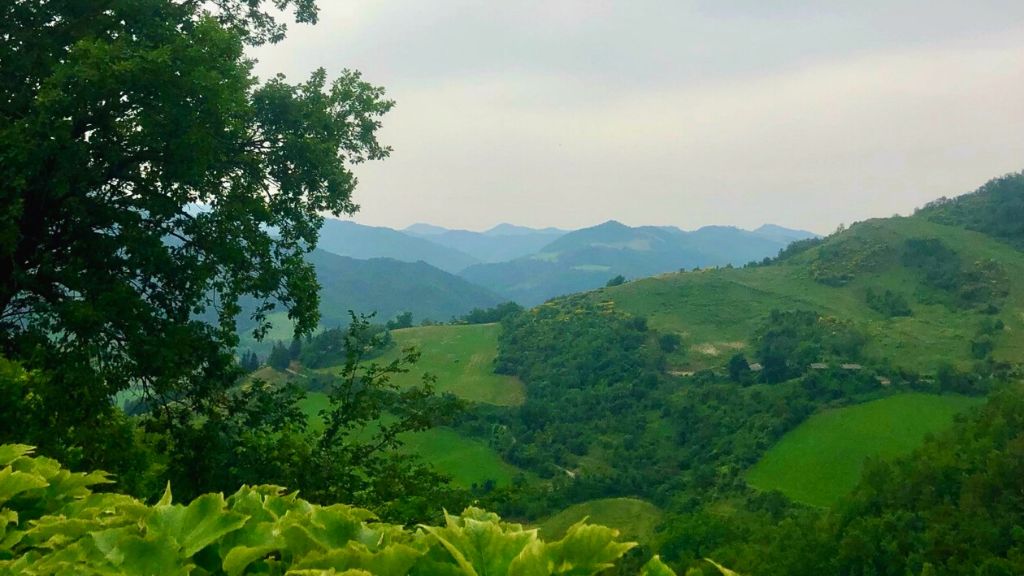Student Stories: Farm Life
Kate Rudd, one of our current MA Regenerative Economics students, blogs about her trip to a farm school and ecovillage in Italy as part of research stemming from her studies at Schumacher College.

Looking out over the hills of Emilia-Romagna from Borgo Basino on 3 June 2022
Today I arrived at Borgo Basino — a farm school and ecovillage based in the Italian region of Emilia-Romagna. My hosts, Evan and Fede, are farmers, researchers and activists, whose vision is to create ‘a new model of multifunctional, global healing’ through knowledge, connection with others, and networks of regenerative sustainability.
Although I come from Lincolnshire — an English county that is famed for little other than its flat, fertile farmland — I’ve always been a city dweller and had barely set foot on a farm before this year. Little did I know, when I embarked on a Master’s in Regenerative Economics at Schumacher College, that it would lead me back to the land…
In the Master’s course, we’ve grappled with some serious questions: how to face the converging crises of climate change, poverty, conflict, backsliding democracy, mass migration, social injustice, biodiversity loss, to name a few. We’ve also explored alternative economic models and news ways of organising, learned how to think more critically and systemically, and how to show up, take action and relate to ourselves and others in a different way.
Many of us came to Schumacher searching for answers — how to address the climate emergency, how to subvert the hegemony of ‘the system’, or how to make the world a better place for future generations? While the ‘answers’ to these wicked problems have remained elusive, we’ve learned how to navigate their complexity and how to dream, innovate and co-create pathways for change.
One of the pathways for change that captured my attention was the work being done by a growing number of farmers and growers across the planet, who are practising what I’m going to call ‘deeply regenerative agriculture’. By this I mean, people like Evan and Fede, who are working not only to heal the land but also the people who live it, by regenerating communities and helping individuals to find a sense of connection, agency and hope. The underlying premise of this work is that by creating an environment where people can re-learn how to live in harmony with nature, with each other and with themselves, it is possible to have a truly regenerative impact on multiple levels — think a flourishing local economy, better food security, increased biodiversity, human health and wellbeing.
But are these outcomes really possible? If so, what exactly does it take to achieve them, and how can they be scaled? That is what I intend to find out in my latest piece of research in which I’ll be looking at a series of projects in Europe, Africa and Latin America that are putting the philosophy of deeply regenerative agriculture into practice. The first stop on this journey is Borgo Basino — so watch this space as I report back on what I discover in real-time!
Written by Kate Rudd. Read more from Kate here.
We are currently accepting applications for the next cohort of students to start the MA Regenerative Economics in September 2022. Find out more and apply via the button below.
